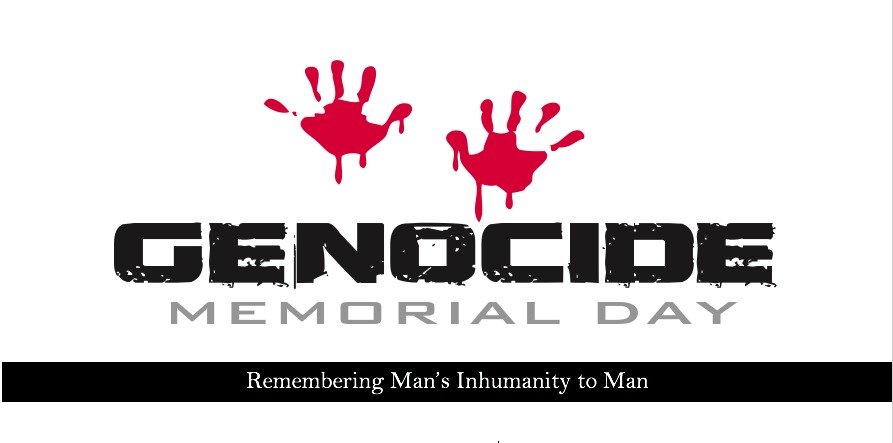Our brothers and sisters of The Decolonial Thought Community in Mexico took up the concept of Genocide Memorial Day (GMD) that is promoted by the Decolonial International Network (DIN). On October 12, 2019 an event was organized to commemorate the Indigenous Holocaust. The event was organised in the state of Tlaxcala where attendees gathered around the statue of Xīcohténcatl, the young captain who was executed because of his resistance to the Spanish colonisers.
View some of the photos below.
This event was a testimony of the presence of a critical ethos in Tlaxcala and an awareness that starts by denouncing the violence of human beings against human beings as well as a commitment to contributing to the destruction of the regimes of modern global domination. The event attracted participants and attendees from not only all over Mexico but also neighbouring countries such as Colombia and Argentina. The Islamic Human Rights Commission, a founding member of DIN and founder of GMD, also had a representative present at the event.
Ulises Tamayo, an academic based in Puebla, started the event by reminding us that on this day, October 12, 1492, Columbus opened the doors of hell for the Indigenous people of the Americas. There is no accurate figure as to how many millions of indigenous people perished at the hands of Europeans. A deliberate attempt was made to either hide the figures or reduce it, the number of deaths was just too high. It is estimated the death toll would amount to 5-10 times the number of people that died at the hands of Nazis, commonly referred to as the holocaust.
Milen Dominguez, a teacher from Tlaxcala, spoke at length about how a real fight was put up against the European colonisers across the whole continent. From South America, Central America and North America, millions of indigenous people died protecting and defending what was theirs. What happened to the Native people everywhere in the Western Hemisphere is one of the most shameful and bloody chapters in the history of mankind. She mentioned how the indigenous people of Latin America witnessed a genocide on a mammoth scale, a crime often underplayed and still not recognised by the perpetrators.
Miguel Adler, local activist and student, commented on how in 1992, as the 500th anniversary of the misnamed “discovery” of America or “encounter” of two worlds was being celebrated, there was an intense intellectual debate about the pertinence of the word “encounter” because it concealed the violence behind the colonisation process. This violent process led to the elimination of approximately 60% of the Mesoamerican population during the 16th century and the asymmetry of power between the components of the supposed hybrid or “mestizo” culture.
Miguel who is a resident of Tlaxcala, highlighted how his ancestors initially resisted the Spanish invasion. But in 1519 the Spanish conquistador Hernán Cortés fought and subdued the Tlaxcaltecas. Cortés employed the divide and conquer strategy that is being used to this day. Cortés was made aware of the rivalry the Tlaxcaltecas had with the Aztecs, he then persuaded them to join an alliance against the Aztec empire, centred at Tenochtitlán to the west. In exchange for their support, he promised not to levy taxes on them or confiscate their land. In 1521 the alliance succeeded, firmly establishing Spanish control of central Mexico. Afterward, the Tlaxcaltecas continued to aid the Spaniards, fighting against other indigenous tribes and settling the newly conquered territories. During most of the 16th century, the Spanish respected the agreement made between Cortés and the Tlaxcaltecas. This agreement was short lived, as the century drew to a close, the Spanish authorities began to collect taxes and occupy their land. Often such history is repeated, time and time again we see groups of people collaborating with invaders leading to the eventual destruction for others and eventually themselves.
The Decolonial Thought Community in Mexico plan to commemorate this event on a yearly basis, with the hope of expanding the GMD project to other cities in Mexico and countries across the continent. The event drew the attention of students, activists, academics and local politicians. DIN and The Decolonial Thought Community will be providing assistance to those that wish to organise the event in the coming years.
See images form the event below.







